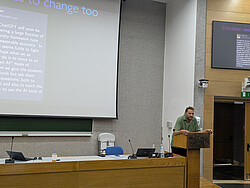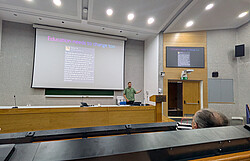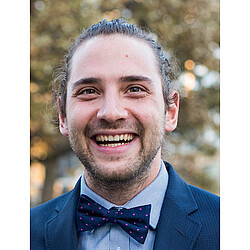Dimitris Papailiopoulos
A brief history of large language models and the reasoning breakthrough
by Dr. Dimitris Papailiopoulos
Associate Professor University of Wisconsin-Madison, USA
When and Where
8th July 2025, 15:00-16:30
Building Γ2, University Campus
Abstract
Large language models based on transformer architectures achieved remarkable progress in natural language processing, but by 2024 many believed we had reached a fundamental performance ceiling. This talk examines how reinforcement learning-based reasoning models have shattered these limitations without requiring architectural changes.
I will overview why performance seemed to stall despite increasing model size and training data, then describe the breakthrough of models like OpenAI's o1/o3 and DeepSeek R1. These models use reinforcement learning during post-training to "think longer" based on problem difficulty, moving beyond simple next-token prediction. DeepSeek R1's release revealed a specific and simple RL technique that unlocked reasoning, confirming that post-training methods—not architectural changes—drive these reasoning abilities.
Reasoning models now rank in the top 99.9th percentile among competitive programmers, can solve over half of 2025's US Math Olympiad problems, and power fully autonomous coding agents that can work for hours. If this trend continues, RL on verifiable domains will eventually allow these models to break through superhuman performance, while enabling smaller, on-device models to achieve remarkable capabilities.
The talk concludes by discussing some speculations on how modern AI technology will transform computer science and engineer education.
Language: English
About the Speaker
Dimitris Papailiopoulos is a Principal Research Manager at the AI Frontiers Lab within Microsoft Research and an Associate Professor of ECE at the University of Wisconsin-Madison. He is interested in large language models and their reasoning capabilities. Dimitris did a postdoc at UC Berkeley and earned his Ph.D. in from UT Austin in 2014, under the supervision of Alex Dimakis. In 2007 he received his ECE Diploma and in 2009 his M.Sc. degree from the Technical University of Crete, in Greece. Dimitris is a recipient of the NSF CAREER Award, two Sony Faculty Innovation Awards, a joint IEEE ComSoc/ITSoc Best Paper Award, an IEEE Signal Processing Society, Young Author Best Paper Award, the IEEE Mac Van Valkenburg Early Career Teaching Award, the Vilas Associate Award, the Emil Steiger Distinguished Teaching Award, and the Benjamin Smith Reynolds Award for Excellence in Teaching. In 2018, he co-founded MLSys, a new conference that targets research at the intersection of machine learning and systems.






